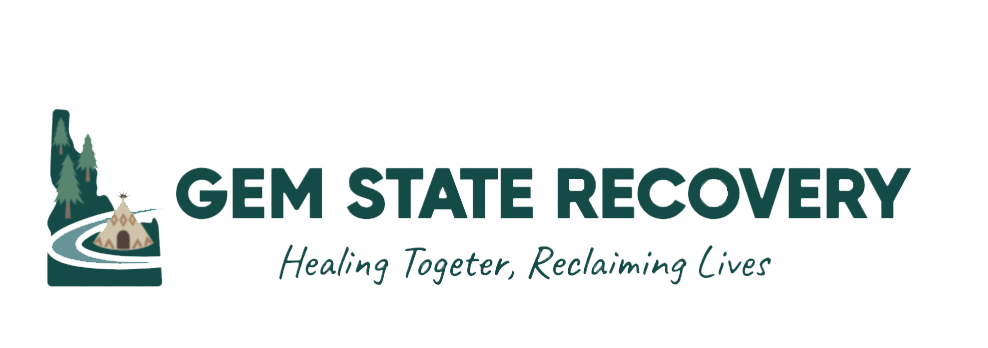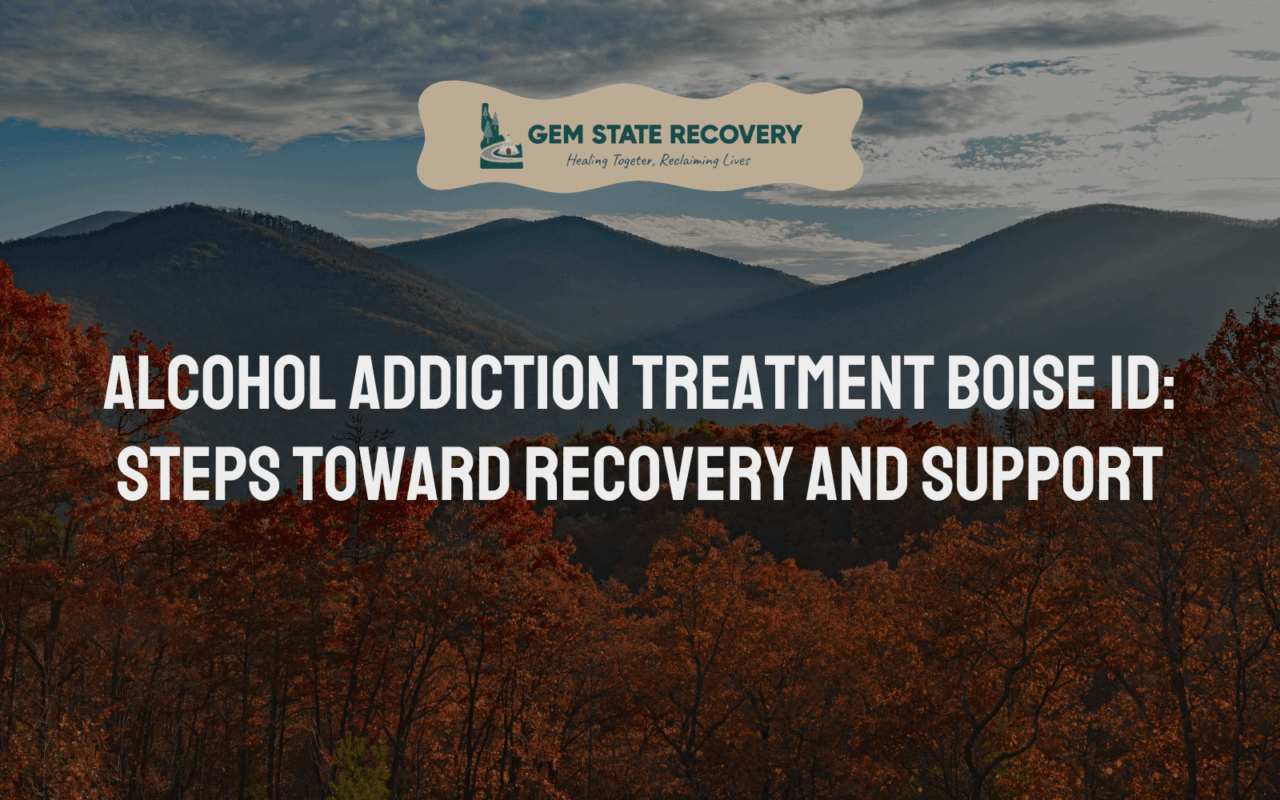Struggling with alcohol addiction can feel isolating and overwhelming, but help is available right here in the Treasure Valley. Whether you’re seeking support for yourself or a loved one, understanding the comprehensive options for alcohol addiction treatment Boise ID offers can be the first step toward lasting recovery. From medically supervised detoxification to evidence-based therapies and family support programs, Boise’s treatment landscape provides multiple pathways to healing and sustained sobriety.
Finding Support for Alcohol Addiction in Boise, ID
Alcohol use disorder affects millions of Americans each year, and Idaho communities are not immune to this widespread challenge. The good news is that modern alcohol addiction treatment Boise ID facilities combine medical expertise, therapeutic innovation, and compassionate care to address both the physical and psychological aspects of addiction. Recovery is possible, and with the right treatment approach, individuals can reclaim their health, rebuild relationships, and discover a fulfilling life beyond alcohol dependence.
Understanding the Need for Professional Treatment
Many people attempt to stop drinking on their own, only to face overwhelming withdrawal symptoms, intense cravings, and underlying mental health challenges that make sustained sobriety nearly impossible without professional support. Alcohol addiction is a complex disease that affects brain chemistry, physical health, and emotional well-being. This is why comprehensive alcohol addiction treatment Boise ID programs address all these dimensions simultaneously.
Professional treatment provides medical safety during the withdrawal process, therapeutic support to address root causes of addiction, and practical tools for maintaining long-term recovery. Rather than viewing addiction as a moral failing or a simple lack of willpower, evidence-based alcohol addiction treatment Boise ID recognizes substance use disorder as a treatable medical condition that responds to appropriate intervention and ongoing care.
Detox and Intervention Assistance: The Critical First Steps
The journey toward recovery often begins with two crucial services: medical detoxification and professional intervention assistance. These foundational elements of alcohol addiction treatment Boise ID ensure safety and help individuals take those difficult first steps toward healing. Medical Detoxification provides supervised withdrawal management in a safe, controlled environment where healthcare professionals monitor vital signs, manage uncomfortable symptoms, and prevent potentially dangerous complications. Alcohol withdrawal can be medically serious, and in some cases life-threatening, making professional detox essential for heavy or long-term drinkers. Key benefits of professional detox include:
- 24/7 medical monitoring to ensure physical safety throughout the withdrawal process
- Medication management to reduce withdrawal symptoms such as tremors, anxiety, nausea, and insomnia
- Prevention of serious complications including seizures and delirium tremens, which can occur during severe alcohol withdrawal
- Nutritional support and hydration to help the body begin healing from the physical effects of chronic alcohol use
- Emotional support from trained staff who understand the challenges of early recovery
Intervention Assistance helps families approach their loved ones about seeking treatment in a structured, compassionate way. Professional interventionists guide families through the process of expressing concern, setting boundaries, and encouraging treatment entry without enabling continued substance use. Intervention services provide:
- Expert guidance on timing, approach, and communication strategies that increase the likelihood of treatment acceptance
- Family education about addiction, enabling behaviors, and healthy boundary-setting
- Emotional support for family members who may feel overwhelmed, angry, or helpless
- Treatment coordination to ensure immediate admission when the individual agrees to seek help
- Follow-up planning to maintain family involvement throughout the recovery process
Together, detox and intervention assistance create a safe, supported entry point into comprehensive alcohol addiction treatment Boise ID that addresses immediate medical needs while laying the groundwork for deeper therapeutic work.
Inpatient and Outpatient Treatment: Flexible Pathways to Recovery
Recovery isn’t one-size-fits-all, which is why alcohol addiction treatment Boise ID offers both inpatient and outpatient options to meet different needs, schedules, and severity levels. Inpatient Treatment provides immersive, residential care where individuals live at the treatment facility for a designated period, typically 30, 60, or 90 days. This intensive approach removes individuals from triggering environments and provides round-the-clock support during the vulnerable early recovery period. Inpatient treatment benefits include:
- Structured environment free from access to alcohol and other substances
- Intensive therapy with multiple individual and group sessions each week
- Peer support from others facing similar challenges, reducing isolation and shame
- Medical and psychiatric care available immediately when needed
- Life skills development including relapse prevention strategies, coping mechanisms, and stress management
- Focus on recovery without the distractions and responsibilities of daily life
Outpatient Treatment allows individuals to receive therapy and support while continuing to live at home and maintain work, school, or family responsibilities. This flexible approach works well for people with strong home support systems, less severe addiction, or those transitioning from inpatient care. Outpatient treatment provides:
- Flexibility to attend treatment sessions while maintaining employment and family commitments
- Real-world application of recovery skills in the actual environments where triggers exist
- Cost-effectiveness compared to residential treatment options
- Family involvement opportunities since the individual remains in the home
- Long-term support that can continue for months or even years as needed
- Community integration that helps individuals build sober support networks in their local area
The choice between inpatient and outpatient care depends on factors including addiction severity, co-occurring mental health conditions, home environment stability, previous treatment history, and personal preferences. Many individuals benefit from starting with inpatient alcohol addiction treatment Boise ID and transitioning to outpatient care for continued support.
Partial Hospitalization and Residential Treatment: Intermediate Care Options
Between traditional inpatient and outpatient treatment exist two intermediate levels of care that provide intensive support while offering more flexibility than full residential programs. Partial Hospitalization Programs (PHP) offer highly structured treatment during daytime hours, typically five to seven days per week for four to six hours daily. Participants return home each evening, allowing them to practice recovery skills in their home environment while still receiving intensive professional support. PHP benefits include:
- Intensive treatment comparable to inpatient care in terms of hours and therapeutic services
- Medical monitoring and medication management without requiring overnight stays
- Family involvement since individuals return home daily and can participate in family therapy sessions
- Transition support for those stepping down from inpatient care who still need substantial structure
- Cost savings compared to residential treatment while maintaining treatment intensity
Our residential Treatment provides 24-hour care in a structured, home-like environment that feels less clinical than traditional inpatient facilities. Residential alcohol addiction treatment Boise ID programs focus on building life skills, developing healthy routines, and creating sustainable recovery practices. treatment offers:
- Therapeutic community where residents support each other’s recovery journeys
- Skills-based learning including cooking, budgeting, job readiness, and relationship building
- Gradual reintegration into daily life responsibilities at a manageable pace
- Extended treatment duration often lasting several months, allowing for deeper behavioral change
- Holistic approaches including recreational therapy, fitness, mindfulness, and creative expression
- Sober living environment that models healthy lifestyle patterns
These intermediate levels of care bridge the gap between intensive inpatient treatment and independent outpatient support, providing the right level of structure as individuals progress through their recovery journey.

Evidence-Based Therapies: The Foundation of Lasting Recovery
Modern alcohol addiction treatment Boise ID incorporates proven therapeutic approaches that address the psychological, emotional, and behavioral aspects of addiction. These evidence-based therapies help individuals understand the root causes of their substance use, develop healthier coping mechanisms, and build skills for long-term sobriety. Eye Movement Desensitization and Reprocessing (EMDR) is a powerful therapy originally developed for trauma treatment that has shown remarkable effectiveness in addiction recovery. Many individuals with substance use disorders have experienced trauma, and unprocessed traumatic memories can trigger substance use as a coping mechanism. EMDR therapy helps by:
- Processing traumatic memories that contribute to substance use without requiring detailed verbal recounting
- Reducing emotional intensity associated with past experiences that previously triggered drinking
- Resolving underlying trauma that often fuels both addiction and co-occurring mental health conditions
- Decreasing cravings by addressing the emotional pain that alcohol was used to medicate
- Improving emotional regulation so individuals can handle distress without turning to substances
Cognitive Behavioral Therapy (CBT) is one of the most extensively researched and effective approaches for treating both addiction and mental health disorders. CBT focuses on identifying and changing the thought patterns and beliefs that lead to addictive behaviors. CBT provides tools for:
- Identifying triggers that lead to cravings and substance use
- Challenging distorted thinking patterns like “I can’t handle stress without drinking” or “I’m worthless”
- Developing coping strategies for managing cravings, stress, and difficult emotions
- Problem-solving skills to address life challenges without resorting to alcohol
- Behavioral activation to increase engagement in healthy, rewarding activities
- Relapse prevention planning to recognize warning signs and implement protective strategies
Dialectical Behavior Therapy (DBT) was originally developed for borderline personality disorder but has proven highly effective for substance use disorders, especially when individuals struggle with emotional regulation, impulsivity, and relationship difficulties. DBT teaches four essential skill sets:
- Mindfulness to increase present-moment awareness and reduce automatic reactions to triggers
- Distress tolerance to manage crisis situations and intense emotions without turning to alcohol
- Emotion regulation to identify, understand, and modulate emotional experiences
- Interpersonal effectiveness to communicate needs, set boundaries, and navigate relationships healthily
- Radical acceptance of circumstances that cannot be changed while committing to positive action
- Self-soothing techniques that provide healthy alternatives to substance use for managing discomfort
Motivational Interviewing is a collaborative, person-centered approach that helps individuals resolve ambivalence about change and strengthen their personal commitment to recovery. This non-confrontational therapy recognizes that motivation fluctuates and respects individual autonomy while encouraging positive change. Motivational interviewing supports recovery by:
- Exploring personal values and how alcohol use conflicts with what matters most
- Reducing resistance by avoiding confrontation and honoring the individual’s perspective
- Enhancing motivation by helping individuals articulate their own reasons for change
- Building confidence in one’s ability to make and sustain behavioral changes
- Resolving ambivalence about recovery by examining both the costs and perceived benefits of drinking
These evidence-based therapies form the clinical backbone of comprehensive alcohol addiction treatment Boise ID programs, addressing the complex psychological factors that perpetuate addiction while building practical skills for lasting recovery.
Life Skills and Practical Support: Building a Foundation for Success
Addiction often disrupts normal life development, leaving individuals without essential skills for independent, healthy living. Alcohol addiction treatment Boise ID programs recognize that clinical therapy alone isn’t enough—people also need practical tools for navigating daily life without substances. Life Skills Training helps individuals rebuild capabilities that may have atrophied during active addiction or that were never fully developed. These practical competencies support long-term recovery by increasing independence, confidence, and quality of life. Essential life skills addressed in treatment include:
- Financial management including budgeting, managing debt, and rebuilding credit
- Employment readiness covering resume writing, interview skills, and workplace professionalism
- Time management to balance recovery activities, work, relationships, and self-care
- Healthy communication for expressing needs, setting boundaries, and resolving conflicts
- Stress management using healthy coping strategies instead of substances
- Meal planning and nutrition to support physical health and establish healthy routines
- Self-care practices including sleep hygiene, exercise, and personal wellness
Case Management provides coordinated care that addresses the multiple challenges individuals face during recovery. These case managers act as advocates and navigators, helping clients access resources and overcome barriers to sustained sobriety. Case management services include:
- Treatment planning that coordinates all aspects of care across different providers and settings
- Resource connection to housing assistance, transportation, childcare, and other practical needs
- Benefits enrollment helping clients access health insurance, disability benefits, or other support programs
- Legal support coordination for clients facing legal consequences of past substance use
- Medical care coordination ensuring treatment for co-occurring health conditions
- Continued care planning to maintain support after formal treatment ends
Family Support: Healing Relationships and Building Recovery Environments
Addiction affects entire family systems, not just the individual struggling with substance use. That’s why comprehensive alcohol addiction treatment Boise ID includes family-focused services that heal relationships, educate loved ones, and create home environments that support rather than undermine recovery. Family Therapy brings family members into the treatment process to address relationship patterns, communication problems, and family dynamics that may have contributed to or resulted from addiction. This therapeutic approach recognizes that family health and individual recovery are interconnected. Family therapy benefits include:
- Improved communication patterns that reduce conflict and increase understanding
- Boundary setting that helps family members support recovery without enabling continued substance use
- Healing past hurts caused by addiction-related behaviors and rebuilding trust
- Understanding addiction as a disease rather than a moral failure or deliberate choice
- Addressing codependency and other unhealthy relationship patterns
- Family relapse prevention by recognizing warning signs and creating response plans
Family Education Programs provide psychoeducation about addiction, recovery, and how loved ones can best support the recovery process while maintaining their own wellbeing. These programs cover:
- The science of addiction including how substances affect the brain and behavior
- Recovery as a process with realistic expectations about challenges and timeframes
- Enabling versus helping so family members can provide support without perpetuating addiction
- Self-care for family members including support groups and individual therapy
- Communication strategies for discussing recovery, concerns, and needs effectively
- Long-term recovery planning that includes the whole family system
Finding the Right Alcohol Addiction Treatment Boise ID for Your Needs
With so many treatment components and levels of care available, finding the right alcohol addiction treatment Boise ID program can feel overwhelming. The most effective approach combines multiple services tailored to individual needs, severity of addiction, co-occurring conditions, and personal circumstances. When evaluating treatment options, consider:
- Accreditation and licensing to ensure quality standards and professional oversight
- Evidence-based approaches that have demonstrated effectiveness through research
- Treatment philosophy and whether it aligns with your values and preferences
- Staff qualifications including credentials, experience, and ongoing training
- Co-occurring disorder treatment if you’re also dealing with mental health conditions
- Aftercare planning to support continued recovery after formal treatment ends
- Insurance acceptance and costs to ensure treatment is financially accessible
- Location and environment that feels safe, comfortable, and conducive to healing
Recovery from alcohol addiction is entirely possible with comprehensive, evidence-based treatment. The various levels of care and therapeutic approaches available through alcohol addiction treatment Boise ID provide multiple pathways to healing, ensuring that each individual can find the support that works best for their unique situation.
Conclusion
If you or someone you love is struggling with alcohol addiction, waiting to seek help only allows the disease to progress further. Professional alcohol addiction treatment Boise ID offers the medical expertise, therapeutic support, and practical tools necessary for lasting recovery. From medically supervised detox through evidence-based therapies like EMDR, CBT, and DBT, to life skills training, case management, and family support, comprehensive treatment addresses every aspect of addiction and recovery. Recovery begins with a single step—reaching out for help. Treatment providers throughout the Boise area stand ready to assess your needs, answer your questions, and guide you toward the appropriate level of care.
Whether you need intensive inpatient treatment, flexible outpatient support, or something in between, alcohol addiction treatment Boise ID programs can provide the foundation for a healthier, sober future. Don’t let another day be stolen by alcohol addiction. Contact a treatment provider today to learn more about how alcohol addiction treatment Boise ID can help you or your loved one begin the journey toward recovery, healing, and a life of renewed possibility. Contact us today by calling 1 (208) 314-4107 or visiting our website. Recovery is possible, support is available, and your story doesn’t have to end with addiction—it can begin with hope, healing, and lasting change.





